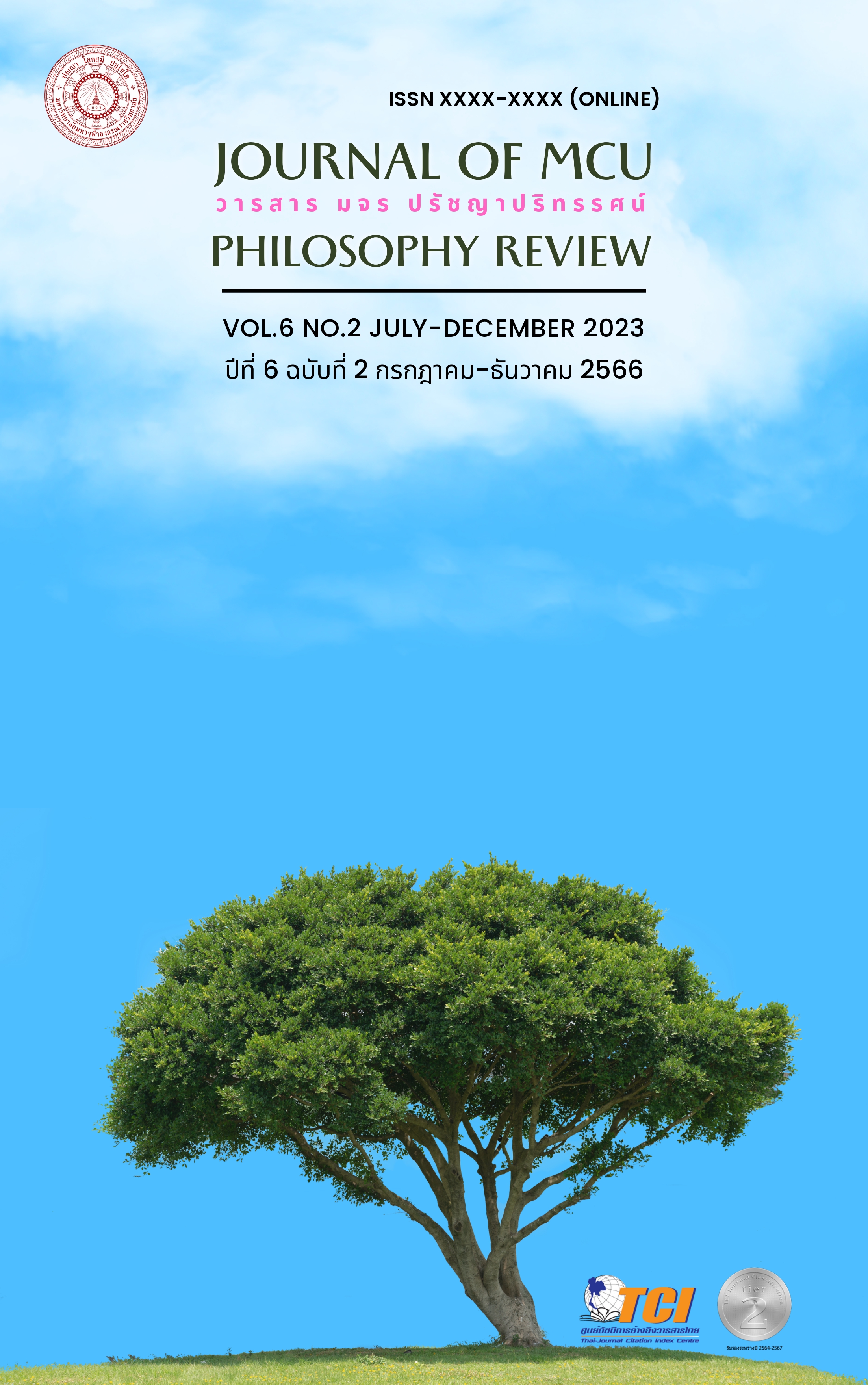Ahosikamma in Kammakathā Khuddakanikãya Paṭisambhidāmagga
Main Article Content
Abstract
This article was aimed to study Ahosikamma in Kammakathā, Khuddakanikāyassa, Paṭisambhidāmagga through studying information from documents, books, and research. It was found that Ahosikamma has a specific meaning that there is only the law of actions (Kamma) but it doesn’t have the consequence of action (Vipāka Kamma) including the good action (Kusala-kamma) or the bad action (Akusala Kamma). If the results can't be given within the period and that time has passed then it is considered Ahosikamma. There are three characteristics of Ahosikamma as follows: 1) it’s without the consequence of action because it has already given results, 2) it’s without the consequence of action in the future because the person has attained the status of an Arahanta, 3) the actions no longer produce the consequence of action. As for Buddhism, there is a belief in actions that all beings have their own Kamma. Those who do good deeds will receive good consequences. Those who do bad action will receive bad consequences. The results of action are given in the present, if they don't produce all the consequences in this life, they will continue in the next life. Therefore, the real Ahosikamma does not exist; if the cycle of rebirth still exists, then everybody must receive the consequences of their action. It will fast or slow up to the Sequence of steps of the consequence of action.
Article Details

This work is licensed under a Creative Commons Attribution-NonCommercial-NoDerivatives 4.0 International License.
บทความที่ได้รับการตีพิมพ์เป็นลิขสิทธิ์ของวารสาร มจร ปรัชญาปริทรรศน์
ข้อความในบทความที่ได้รับการตีพิมพ์ในวารสาร ถือเป็นความรับผิดชอบของผู้เขียนบทความ และข้อคิดเห็นนั้นไม่ถือว่าเป็นทัศนะและความรับผิดชอบของกองบรรณาธิการวารสาร มจร ปรัชญาปริทรรศน์
References
ชาตรี ชุมเสน. (2564). การพิสูจน์ความจริงและการพิสูจน์ความเท็จในปายาสิราชัญญสูตร: กรณีชีวิตหลังความตาย. วารสารวิชาการสถาบันพัฒนาพระวิทยากร, 4(1), หน้า 35-46.
บรรจบ บรรณรุจิ. (2557). โครงการบรรยายพิเศษ ชีวิตไม่ติดกรรม. กรุงเทพมหานคร: ยุวพุทธิกสมาคมแห่งประเทศไทย ในพระบรมราชูปถัมภ์.
ประชุม เรืองวารี. (2555). กรรมในเชิงลึก 29. กรุงเทพมหานคร: พิมพ์โดยเสด็จพระราชกุศล ในงานออกเมรุพระราชทานเพลิงศพ สมเด็จพระมหาธีราจารย์ (นิยม ฐานิสฺสรมหาเถระ).
มหาจุฬาลงกรณราชวิทยาลัย. (2539). พระไตรปิฎกภาษาไทย ฉบับมหาจุฬาลงกรณราชวิทยาลัย. กรุงเทพมหานคร: โรงพิมพ์มหาจุฬาลงกรณราชวิทยาลัย.
มหาจุฬาลงกรณราชวิทยาลัย. (2560). อรรถกถาภาษาไทย ฉบับมหาจุฬาลงกรณราชวิทยาลัย. กรุงเทพมหานคร: โรงพิมพ์มหาจุฬาลงกรณราชวิทยาลัย.
วศิน อินทสระ. (2555). หลักกรรมและการเวียนว่ายตายเกิด. กรุงเทพมหานคร: สำนักพิมพ์ธรรมดา.
สมเด็จพระพุทธโฆษาจารย์ (ป.อ.ปยุตโต). (2561). พจนานุกรมพุทธศาสตร์ ฉบับประมวลศัพท์. กรุงเทพมหานคร: โรงพิมพ์ บริษัท สหธรรมิก จำกัด.
สมเด็จพระพุทธโฆษาจารย์ (ป.อ.ปยุตโต). (2562). บุญ กรรม นรก สวรรค์ เลือกกันได้ทุกคน. กรุงเทพมหานคร: สำนักพิมพ์ผลิธัมม์ จำกัด.
พระพรหมคุณาภรณ์ (ป.อ. ปยุตฺโต). (2563). หลักกรรมสำหรับคนสมัยใหม่. นครปฐม:วัดญาณเวศกวัน.
สมเด็จพระพุทธโฆษาจารย์ (ป.อ.ปยุตโต). (2564). พุทธธรรม ฉบับปรับขยาย. ฉบับข้อมูลคอมพิวเตอร์ ครั้งที่ 24. พิมพ์ครบสามภาครวมในเล่มเดียว.


